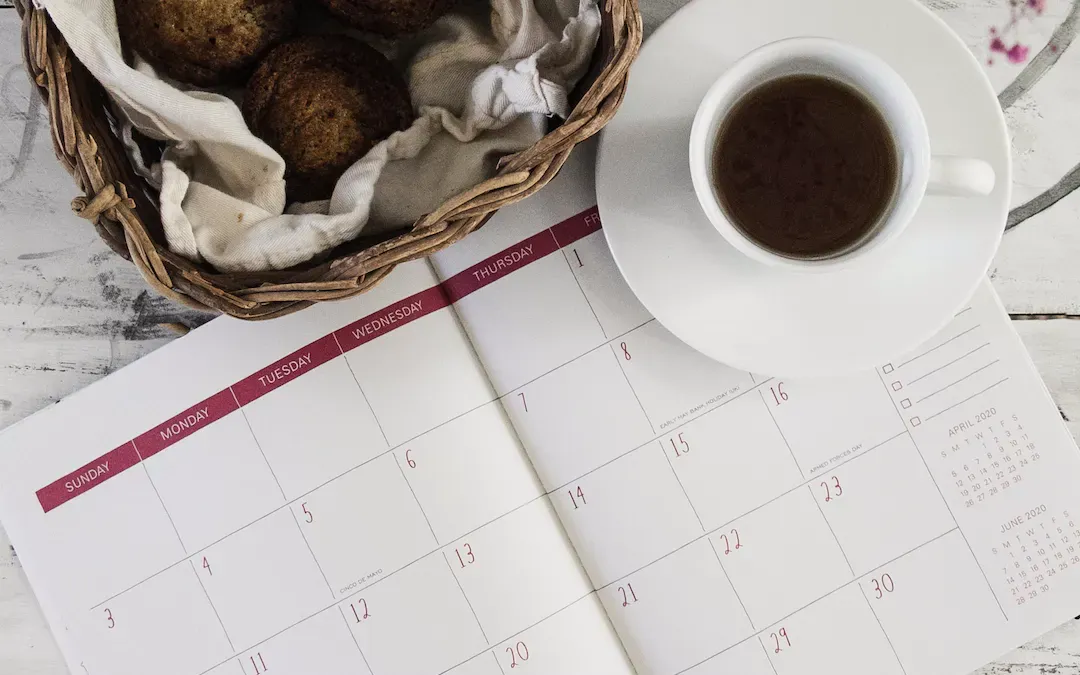Personal Organization 101
Do you feel disorganized? Overwhelmed? Lost? Drowned in a mess? Do you regularly forget tasks? Do you miss your deadlines? Do you lose your files? If any of those ring a bell, then you may need to read this!

In this article, I want to discuss the core elements of Personal Organization.
Do you feel disorganized? Overwhelmed? Lost? Drowned in a mess? Do you regularly forget tasks? Do you miss your deadlines? Do you lose your files? If any of those rings a bell, then you may need to read this!
Introduction to Personal Organization
I have already discussed the reasons why you need a Personal Organization system. Here, I will focus on the key things that you need to be at least somewhat organized. Personal Organization is a skill, and like most skills, it can be learned. It's not about nature vs nurture. It may be more natural for some people, but it can be learned. Of course, learning always requires curiosity, practice, trial and error.

This post is NOT about productivity per se, and it's not about knowing what matters to you (i.e., having clarity of intent and/or purpose). I just want to focus on what you need to be organized.
Tools are secondary in all this. Yes, they can help, but they’re just means to an end. Moreover, in general, most of what matters works across a variety of tools. Focusing on tooling and thinking that you’re making progress is misguided (at best). There’s a lot of procrastination in disguise around Personal Organization and Productivity systems.
Note that this content will be part of the Knowledge Worker Kit, in which we explore Personal Organization, Productivity, Personal Knowledge Management, and much more!
What are the core elements of a Personal Organization system?
This first part is based on a previous edition of my newsletter, When thinking about Personal Organization, there are different dimensions you can consider:
- Habits, routines, systems, processes and methods: everything you can rely on to stay organized and productive
- Personal Knowledge Management (PKM) and Journaling: organizing ideas, thoughts, knowledge, inspiration, research and notes, realizations, gratitude, etc
- Projects Organization: organizing your projects and their related information and data
- Planning and Prioritization: surfacing and keeping track of plans and priorities in order to know what to focus on
- Task Management: organizing tasks, decomposing work into manageable units and decluttering your mind
- Focus, Attention, Time Management and Action: organizing your time, and removing barriers to progress
- Control: tracking progress and adjusting course if needed
- Work: organizing your work and being amazing collaborators
- Information and Data Management: organizing, structuring and managing tons of data and information
It's all of that, intertwined, and then some more. I feel very strongly that all Knowledge Workers should invest some time in designing their own Personal Organization system. It doesn't need to be (actually shouldn't be!) very complex, but it should exist, and it should include elements from all those dimensions:
- Without habits, routines and systems, you can't be consistent and efficient
- Without PKM and journaling, you don't manage your knowledge and forget tons of things all the time. You also forget to celebrate your wins
- Without projects organization, you quickly get lost and fail to communicate important information to relevant stakeholders
- Without planning and prioritization, you're like a beheaded chicken running around
- Without proper task management, you just work on whatever you think about, which may be a good or bad thing...
- Without ways to focus your attention, manage your time and act, you get distracted, and waste time. You don't make meaningful progress on a regular basis
- Without control systems, you don't really know where you stand, lack clarity and confidence about your progress
- Without effective and "modern" work methods and techniques, you're like a dinosaur trying to use LLMs without understanding their purpose
- Without Information and Data Management techniques and systems, you crawl under the weight of information overload, and you're bound to remain overwhelmed
What is the minimum set of tools you need to organize yourself
While tools are secondary, there is a vital or "minimum viable" set you need to organize yourself. The choice itself isn't that important, though. What matters is choosing those that work for you. Use as few tools as possible, and only consider adding new ones to your toolbox if you can't avoid it. You probably need fewer features than you imagine.
So what is the "minimum viable" set of tools you need?
- An email inbox
- A calendar to plan meetings, appointments, book time slots, and set reminders
- A task management tool to keep track of everything
- A knowledge management tool to think, journal, capture, and organize all your thoughts, ideas, inspiration, and knowledge
- A storage system to organize your files
- (optionally) a system to keep track of the groceries you need
Those tools are the bare minimum to allow yourself to forget things:
- When I add an appointment to my calendar, I know I'll get notifications about it, so I can forget about it until the time comes
- When I add a task to my daily note, I know it'll resurface later on, and I'll know what I need to get done
- When I record what I did during a particular day in my daily note, I know it'll stay there forever
- When I write a note about something on my mind, I know it'll stay there forever
- When I put a file in my storage system, I know it'll stay there forever
In all cases it's the same story. And that's the key point: those tools are much more reliable than my flawed brain will ever be, whether I perfectly organize everything or not. I can rely on those tools, and let go. I can forget and free my mind for other things.
I personally use:
- Email: GMail
- Calendar: Google Calendar
- Task Management: Obsidian
- Knowledge Management: Obsidian with the Obsidian Starter Kit and Notion for content I share with others
- Storage system: Google Drive
I use few tools by design, and I try to keep it that way. For instance, I previously used Trello for task management, but realized that I didn't care about all the bells and whistles it offered. All I needed was basic task management, that I could easily achieve using Obsidian, my daily notes and the Kanban plugin.
Personal Organization 101
Assuming that you have your baseline of tools, what should you do? The basics are pretty straightforward:
- If you think about something you need to do, add it to your task management system. The basic organization can be as simple as a few columns:
- Today
- This Week
- This Month
- This Year
- Backlog
- With that, you can already organize a LOT of tasks
- If a task should take less than two minutes, do it right away (Getting Things Done method of David Allen)
- If you must go somewhere or do something at a certain date/time, add it to your calendar, and make sure to add reminders and enable notifications on your computer/smartphone
- If there are recurring events, create those in your calendars (e.g., birthdays, reminders to send invoices, etc)
- During the day, keep a daily note open to keep track of
- What you want to do
- What you have accomplished
- What you have in mind, your ideas
- What you have learned, found interesting, etc
- What you feel grateful for
- ...
- Check out my daily note template or the Obsidian Starter Kit if you want a good starting point (although you can do the same with most apps out there)
- If you're on the go, then try to take something you can use to take notes. If you can't or won't, use your phone and send yourself a mail with the information.
- Whenever possible, convert anything analog into digital. And make sure to clean up your mailbox
- Put a basic organization system in place, and try to reuse the same structure across tools. It doesn't have to be complicated (e.g., Family, Work, Project A, etc). In most cases, the PARA method works great and scales really well
- Regroup as many of your files as you can in a single storage system
- If you receive or create important files you need to keep for more than a day, store those in your system
- Take some time once in a while to clean up your mess. All your systems should remain organized (not perfectly!)
- For E-mail, this means leaning towards inbox zero
- For Calendars, it means cleaning up bogus events/reminders/tasks
- For Task Management, it means removing done/outdated tasks
- For Knowledge Management it means creating atomic notes, connecting ideas together, tagging notes, managing knowledge through time, updating Maps of Content, etc
- For storage systems it means making sure all your files are where they belong, that your "Downloads" and "My Documents" folders are not messy, etc
- To perform this regularly, you can include a dedicated task as part of your periodic reviews
The central theme in all the above is defining one place for everything and storing everything in its place (i.e., organizing a minimum), and allowing yourself to forget. The more you can forget, the better.
And that's about it. Seriously! This is not as hard as it may sound. And it all starts with basic systems. No need to overengineer and automate everything from the get go. Of course there are more advanced ideas, techniques and methods. Many things can be automated, improved with AI, LLMs and such. But ignore all that for now. Start small and keep things simple for as long as you can. Once you get to the point where it all feels unmanageable, then maybe it'll be time to invest a bit more time to better define and improve your Personal Organization system.
The one thing I recommend to explore in the beginning is Personal Knowledge Management. You wouldn't believe how impactful it can be in one's life. Read some of my articles on the topic to better understand the underlying ideas. Also, do consider journaling, performing periodic reviews, and designing your own systems:



About Sébastien
I'm Sébastien Dubois, and I'm on a mission to help knowledge workers escape information overload. After 20+ years in IT and seeing too many brilliant minds drowning in digital chaos, I've decided to help people build systems that actually work. Through the Knowii Community, my courses, products & services and my Website, I share practical and battle-tested systems. You can follow me on X 🐦 and on BlueSky 🦋.
I am an author, founder, and coach. I write books and articles about Knowledge Work, Personal Knowledge Management, Note-taking, Lifelong Learning, Personal Organization, and Zen Productivity. I also craft lovely digital products.
If you want to follow my work, then become a member and join our community.
Ready to get to the next level?
If you're tired of information overwhelm and ready to build a reliable knowledge system:
- 🎯 Join Knowii and get access to my complete knowledge transformation system
- 📚 Take the Course and Master Knowledge Management
- 🚀 Start with a Rock-solid System: the Obsidian Starter Kit
- 🦉 Get Personal Coaching: Work with me 1-on-1
- 🛒 Check out my other products and services. These will give you a rock-solid starting point for your note-taking and Knowledge Management efforts




